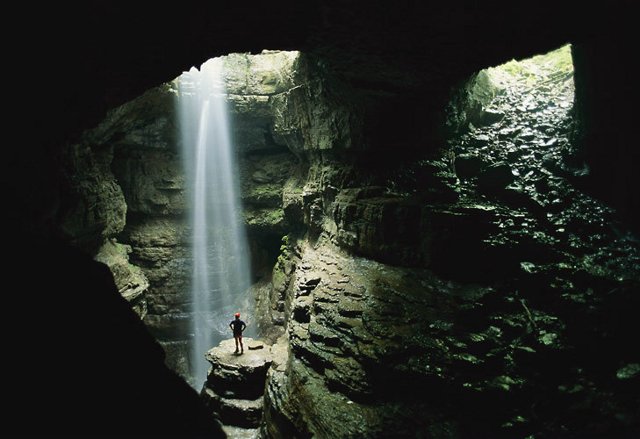|
|
Cave Underground Space
|
Ecology
Cave-inhabiting animals are often categorized as troglobites (cave-limited species), troglophiles (species that can live their entire lives in caves, but also occur in other environments), trogloxenes (species that use caves, but cannot complete their life cycle wholly in caves) and accidentals (animals not in one of the previous categories). Some authors use separate terminology for aquatic forms (for example,, stygobites, stygophiles, and stygoxenes).
Of these animals, the troglobites are perhaps the most unusual organisms. Troglobitic species often show a number of characteristics, termed troglomorphies, associated with their adaptation to subterranean life. These characteristics may include a loss of pigment (often resulting in a pale or white coloration), a loss of eyes (or at least of optical functionality), an elongation of appendages, and an enhancement of other senses (such as the ability to sense vibrations in water). Aquatic troglobites (or stygobites), such as the endangered Alabama cave shrimp, live in bodies of water found in caves and get nutrients from detritus washed into their caves and from the feces of bats and other cave inhabitants. Other aquatic troglobites include cave fish, the Olm, and cave salamanders such as the Texas Blind Salamander.
Cave insects such as Oligaphorura (formerly Archaphorura) schoetti are troglophiles, reaching 1.7 millimetres (0.067 in) in length. They have extensive distribution and have been studied fairly widely. Most specimens are female but a male specimen was collected from St Cuthberts Swallet in 1969.
|
|









